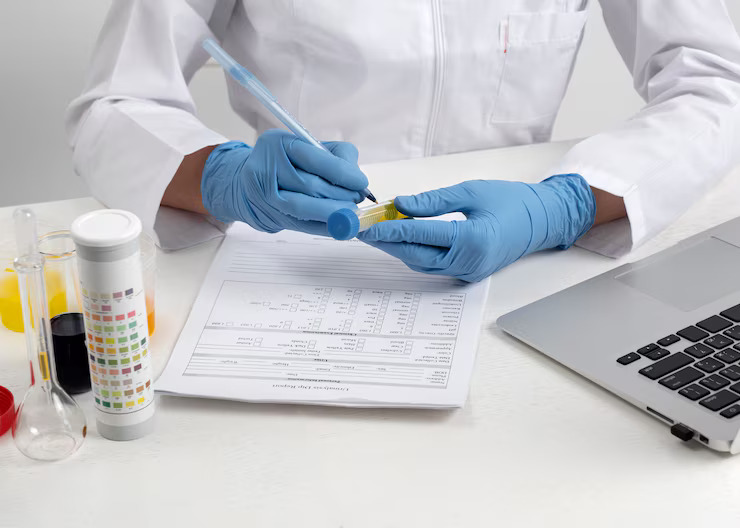Types of TB tests: Skin test vs blood test
Tuberculosis (TB) is a serious infectious disease that primarily affects the lungs. It spreads through airborne droplets when an infected person coughs or sneezes. Although TB is treatable, early detection is crucial to prevent its spread. One of the first steps in managing TB is getting tested, especially if you’ve been exposed or are experiencing symptoms. When searching for TB testing near me, you’ll typically come across two main types: the TB skin test and the TB blood test.
Both tests serve the same purpose — to determine whether you have been infected with the TB bacteria — but they work in different ways and have unique advantages. Understanding these differences is key to deciding which option is right for you, especially when you are looking to get a TB test near me.
TB Skin Test (Mantoux Tuberculin Skin Test)
The TB skin test, also known as the Mantoux tuberculin skin test, is one of the oldest and most commonly used methods for detecting TB infection. This test involves injecting a small amount of purified protein derivative (PPD) just under the top layer of your skin, usually on your forearm.
How It Works:
After the injection, you must return to the healthcare provider 48 to 72 hours later. During this follow-up visit, the provider checks the injection site for a reaction, which appears as a raised, hard bump. The size of this bump determines whether the test result is positive, indicating TB exposure.
Advantages:
- Cost-effective and widely available.
- Simple to administer.
- Ideal for large-scale screening, such as in schools or workplaces.
Limitations:
- Requires two visits.
- Interpretation can vary based on a person’s health and vaccination history.
- People vaccinated with BCG (Bacillus Calmette–Guérin) may show a false-positive result.
TB Blood Test (Interferon-Gamma Release Assays)
The TB blood test, commonly referred to as an Interferon-Gamma Release Assay (IGRA), is a newer alternative that includes two main types: QuantiFERON-TB Gold and T-SPOT.TB. This test measures your immune system’s response to TB bacteria by analyzing a blood sample in a laboratory.
How It Works:
A healthcare provider draws a blood sample and sends it to a lab. The lab checks for specific immune markers that indicate whether the person has been exposed to TB.
Advantages:
- Requires only one visit.
- Results are not influenced by the BCG vaccine.
- More accurate in people with prior TB vaccinations or those unlikely to return for a second visit.
Limitations:
- Typically more expensive than the skin test.
- Requires lab facilities, which may not be available in all locations.
- Slightly longer turnaround time for results.
Skin Test vs Blood Test: Which One Should You Choose?
The choice between the skin test and the blood test depends on a few factors, including your medical history, risk level, and access to healthcare services.
If you’re someone who has received the BCG vaccine, the blood test might be a better option, as it avoids the possibility of a false-positive result. On the other hand, if cost or access is a concern, the skin test remains a practical and reliable choice.
For people who are unlikely to return for a second appointment, such as travelers or those with busy schedules, the blood test offers the convenience of single-visit testing. Healthcare providers often recommend blood tests for people who are at higher risk, such as those with compromised immune systems.
Where to Get a TB Test Near You
If you’re wondering where to find TB testing near me, the good news is that both types of tests are commonly offered at urgent care centers, local clinics, hospitals, and public health departments. Some pharmacies and private labs also provide TB testing services. Searching online for “TB test near me” can help you locate the nearest facility and compare costs, availability, and turnaround time.
Before you book an appointment, it’s a good idea to check whether the facility offers both test types and which might be more appropriate for your situation. Some clinics also offer same-day results for blood tests or weekend availability for the skin test.
Final Thoughts
TB testing is a crucial step in safeguarding your health and the health of those around you. Whether you choose the traditional skin test or the more advanced blood test, what matters most is getting tested if you’re at risk or have symptoms. With many testing centers and clinics offering convenient services, it’s easier than ever to find reliable TB testing near me.
Taking the time to understand the differences between the TB skin test and the TB blood test can help you make a more informed choice — and take one step closer to peace of mind.

